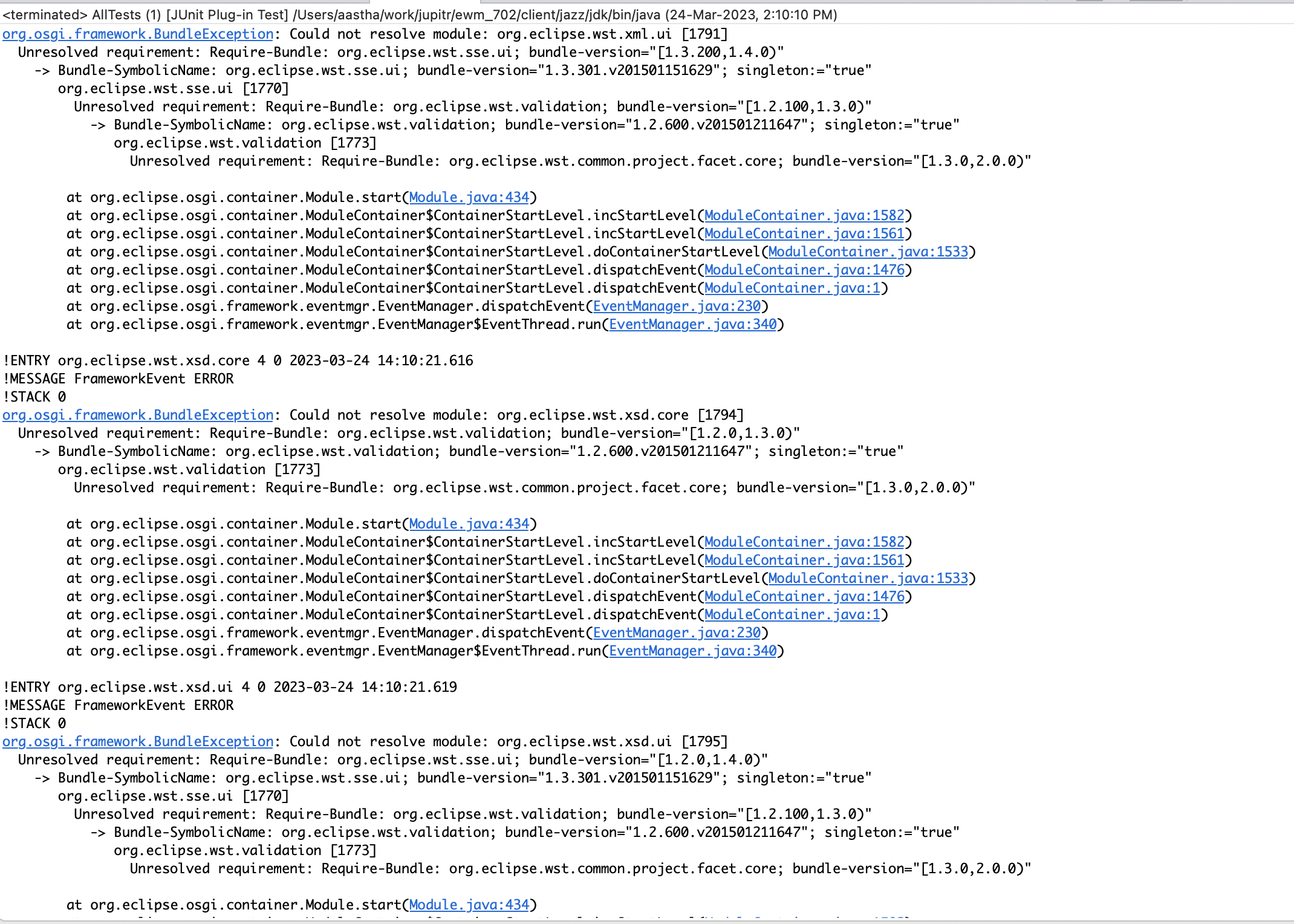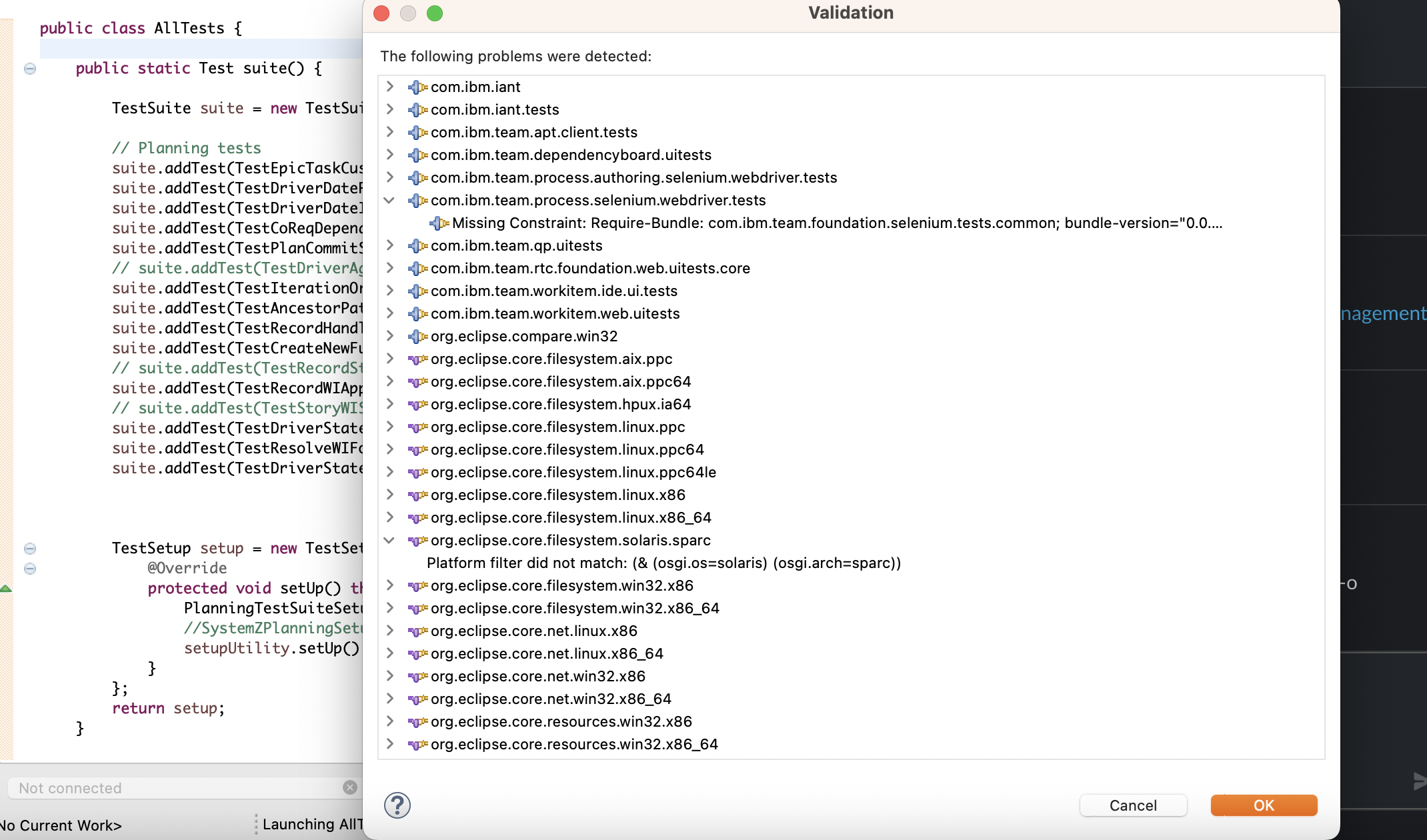Is there a change in Unit testing framework from RTC-5.0.2 to EWM-7.0.2
We have extended lot of RTC functionality and developed new features in our custom environment. We had written Test suite for Junit Plugin testing in RTC-5.0.2 and now post upgrading to EWM-7.0.2 SR1 when we try to run test cases we are seeing lot of errors related to eclipse plugins. Is there a major change in the APIs. While validating plugins we are getting Platform filter errors and Missing constraints errors. Please guide us on debugging this error. Also please share any documentation which help in understanding trying Junit test cases for EWM-7.0.2SR1. Thanks
3 answers
I have been maintaining the EWM Extensions workshop and have used the EWM APIs and the EWM SDK for years. I am not aware of breaking API changes since RTC 2.0. There have been minor API changes I have seen in the past that, if used, broke the code for previous versions, which is to be expected.
But for 7.0.2 SR1 you want to look at my blog how to get the environment to work. If you do not follow these hints, you are likely not going to able to use the Extensions Workshop. I have published hints and erratas on this blog https://rsjazz.wordpress.com/ every time I found issues with the Extensions Workshop or the APIs. You can search the blog and the posts are also tagged.
If plugins and features are done correctly, as described in the Extensions Workshop, they should automatically pick up newer versions of plugins and features in the target platform/SDK. If there are dependency issues, Eclipse and the compiler should be guides to find out what the issue is. If the environment works and you see errors you need to find out what the reason is. Use Jetty for initial testing. If the stuff compiles and works in general, follow your Unit tests to find out what is going wrong. It is your JUnit testing, I am not aware of any dramatic changes in the unit testing frameworks, except maybe a newer JUnit version compared to the ancient EWM 5.0.x.
I am not aware of documentation for specifics in EWM APIs, besides the Extensions Workshop and the Developer Wiki, see https://jazz.net/wiki/bin/view/Deployment/CLMProductAPILanding for places for specific APIs.
I am not sure if documentation would help, Who reads documentation?
Your question is devoid of any useful information with respect to the issue you see, so you should not expect any detailed help.


Comments
This has nothing to do with the EWM stuff as far as I can tell. You will have to manage your dependencies so that the tests can find all required plugins. Besides that the validation issues do not necessarily have to all be errors.
I do not know where the dependencies to the org.eclipse.wst (Web Standard Tools?) is introduced. Maybe you have to get and install these libraries/plugins/features.
You will have to debug your unit tests and find out what is actually driving errors and what is just clutter.
ok got it. Also can you please tell me what is the difference between Client SDK and server SDK as till RTC-5.0.2 there was only one sdk. Currently I am using Server SDK. What is the use case of Client sdk. Thank you!
I would suggest you read and perform the Extensions Workshop, as that explains all that.
The client SDK only contains the client SDK. Client and server SDK have different Eclipse version requirements. Which drove the need to split the Client SDK with support for newer Eclipse versions away from the Server SDK (which retains the client SDK for the supported Eclipse. Something like that....
The client SDK(s) can be used to write EWM Eclipse client extensions.